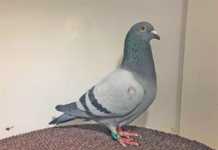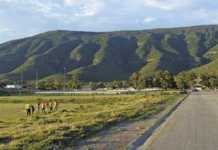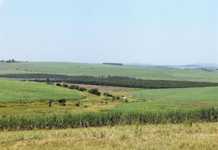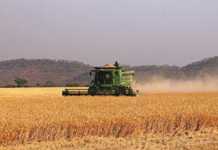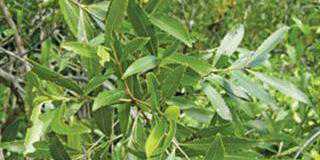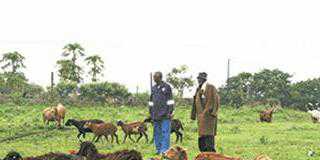Harvest time in Citrusdal in the Western Cape, which produces much of the country’s export citrus, has for many years been accompanied by a rise in rural crime, as the influx of migrant workers from the Eastern Cape, Lesotho, and as far away as Zimbabwe, almost doubles the district’s population and stretches the capacity of the local police.
This year the harvest has come in with grief and fear, as four weeks in April and May saw four people murdered on farms in Citrusdal’s Bo-Rivier area. On 22 April, 47-year-old farm worker Gertruida Sauls was murdered on the farm Theerivier. According to Citrusdal’s station commander Lt Col Cisce Coetzee, the incident was “alcohol-related”, and the boyfriend of the victim was charged with the crime.
Five days later, a 75-year-old woman, Henna Smith, was murdered on the same farm, by a group of men who entered her house at night, overpowered her, tied her hands and feet with cable ties and strangled her. Just after midnight on 6 May, 48-year-old Gertruida Fransman was stabbed to death on the farm Tienrivieren, during an argument between two men which she tried to stop.
On 20 May, 26-year-old Susana Jansen was found dead on the farm Kleinvlei, in the toilet of the seasonal workers’ hostel. Post-mortem results have not been finalised but the victim had red marks on her neck and her clothes were in disarray.
According to Coetzee there are 194 farms in the Citrusdal farming community, 73 of which are in the Bo-Rivier area. There are 45 hostels used to accommodate seasonal workers.
Coetzee insisted that in all but the Smith case, which he said was a robbery gone wrong, the murders had been “domestic-violence related”. “The abuse of alcohol, resulting in contact crime such as assaults and domestic violence, remains the biggest challenge in the Citrusdal policing precinct. The influx of seasonal workers does pose challenges but these do not specifically impact on farm security,” he said.
Petrus Brink of the Surplus People’s Project, disagreed. “Labour brokers bring seasonal workers in from the Eastern Cape. They are paid peanuts,” he said. Brink said the practice had implications for security because the lack of decently paid jobs aggravated the local population, and the poor treatment experienced by many migrant workers incited hatred.
Coetzee said that relations between farmers and farm workers were good in Citrusdal.
“There have been few complaints to the police involving differences between farmers and their workers,” he said. Agri Wes-Cape’s CEO Carl Opperman said that the moral decay of rural society was a major contributing factor to problems of farm security in the Western Cape, as well as increasing unemployment and drug abuse.
“However, we cannot just accept that people are brutally attacked and killed in their homes and on private property. We expect government and law enforcement officers to do everything in their power to ensure safe living and working environments for everyone in this province,” he said.
In response to the Citrusdal murders, the police convened an imbizo on the farm Karnemelksvlei on 19 May. According to Tiggie September of ALG Estates, the event reassured local farmers and farm workers that the police were “on top of the problem”. The police have a new patrol car, and 11 recently trained recruits would be used to beef up sector policing which had been in place since 2008.
To help with sector policing, ALG Estates had made an operations centre and a trauma room available to the police on the farm Noordhoek. According to Rev Danielle van Zyl, of the Citrusdal Dutch Reformed Church, Henna Smith’s murder, the first white farm murder in the district, had made white landowners “more security conscious than before” and had spelled the demise of the farm shop “as people are saying that the intruders were after the shop takings”.
Van Zyl said that morale had been lifted by the arrests of three men on the day of the murder, and by police reassurances that the incident was an isolated one. Brink insisted that farm violence would persist while labour-brokers were used to bring in seasonal workers.
“The police have not released the names of the men arrested in connection with the Smith murder because they say the case is too sensitive. “I know for a fact that the suspects are black males from out of town. They can’t continue to say that the system of migrant labour is not a farm security issue,” he said.

